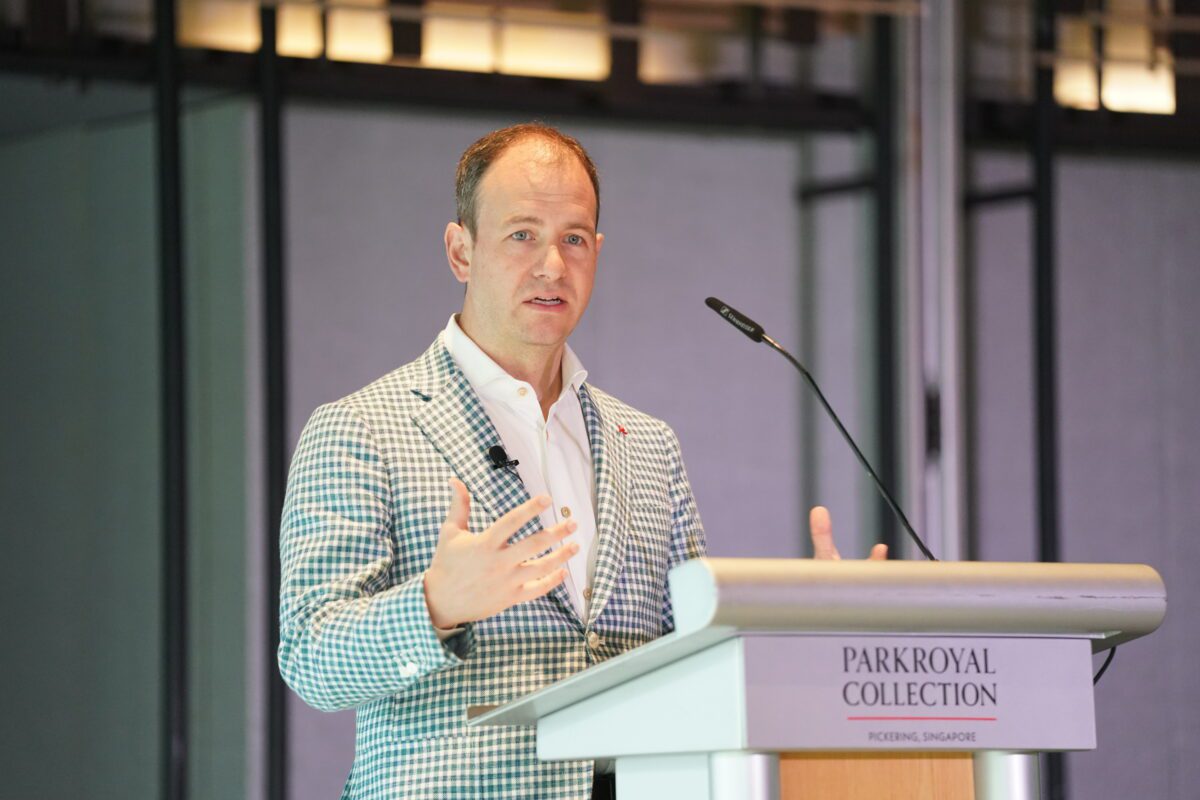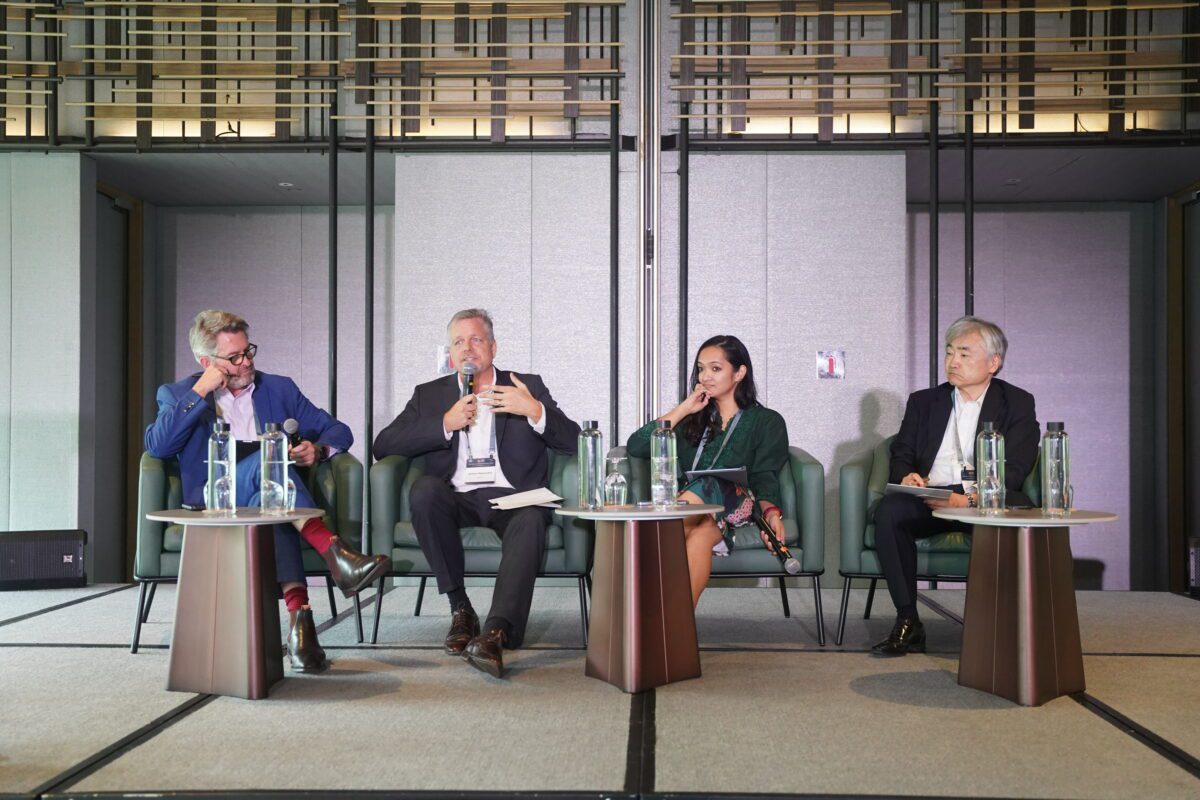Delegates at the Carbon Market Institute’s 2nd Singapore Carbon Market & Investor Forum this morning have heard how collaboration across the Asia Pacific (APAC) region is supporting the growth of climate and nature positive investment decisions. However, speakers also warned delegates slower adoption of new market-enabling regulations risk slowing the current pace of investment.
As the Singapore-Australia Green Economy Agreement nears two years, Australian Deputy High Commissioner to Singapore, Emily Follet remarked that “The Green Economy Agreement is a real pathfinder agreement… these partnerships help to build the clean energy linkages and facilitate investment in the transition.”
“We don’t have time to be establishing principles at a national level and then come together to establish the synergies for international cooperation. We need to be working together in a coordinated way… on a without prejudice basis.”
While a lagging regulatory environment presents some risks to continuing growth in emissions reduction for the region, there is a sense of overall momentum as the region, and the world, looks towards COP29 later this year, where the new collective quantified goal on finance will be determined. Against this global context, governments and private organisations across the APAC region are actively investing in decarbonisation solutions, and looking ahead to climate and nature positive investments, in order to remain ahead of the global economic curve.
Southeast Asia Regional Lead on Green Finance & Carbon Pricing Mechanisms at the UK Foreign, Commonwealth & Development Office, Charis Yeap highlighted the increasing number of carbon pricing mechanisms emerging across the APAC Region, but equally the UK Government’s position on supporting the decarbonisation of emerging economies: “We’re looking to be more dynamic and responsive towards the needs of other developing countries.”
On the linkage between green finance and emissions reduction, Ms Yeap Leang Khai commented that “When we’re looking at green finance more widely, we look at it in two ways: developing the green finance system and channelling the financial flow into the best solutions.”
Principal Climate Change Specialist at the Asian Development Bank, Virender Duggal further reiterated the role of carbon pricing mechanisms in supporting investment in emissions reductions, noting that “We have a sufficient amount of experience, and knowledge, to demonstrate that carbon finance, if structured properly, can scale decarbonisation activity.”
However, Mr. Duggal also emphasised the evolving nature of integrity and quality and the need to establish projects that can adapt to evolving standards. Commenting on the Asian Development Banks Climate Action Catalyst Fund, launched at COP28, part of which provides upfront capital to early-stage carbon projects to ensure the project quality, Mr. Duggal commented that “Carbon finance usually comes in a cash flow process after the project has been up and running for a few years and gone through stringent MRV… but the greatest finance requirement is when the project is being established…. What we are trying to do is establish a mechanism for upfront financing of robust projects, to then deliver credits against a fixed price contract.”
Senior Manager in the Singaporean Ministry of Trade & Industry, Vicki Yong also noted the importance of global frameworks such as Article 6, which the Singaporean Government has signed multiple memoranda of understanding under already, in channeling climate finance to emerging economies. “Our prioritisation is really our bilateral agreements with countries” Ms. Yong said.
Describing the establishment of specific eligibility criteria for the credits the Singaporean Government will invest in, Ms. Yong noted that the Government is also “aiming to support companies to understand how to source, and how to use the high-quality credits eligible under the Singaporean Government’s eligibility criteria.”
While progress on Article 6 – the UN-based carbon market framework – has been slow, International Policy Advisor at the International Emission Trading Association, Björn Fonden reiterated the importance of the mechanism in supporting the goals of the Paris Agreement: “We know that current ambition is not near to the ambition required to achieve the Paris Agreement targets. Carbon markets are just one tool to help raise the ambition of governments, and if markets aren’t raising ambition, then they are not fulfilling their purpose.”
While progress on scaling high integrity carbon markets has been slow on a government level, the emergence of independent verification frameworks, including the Voluntary Carbon Markets Integrity Initiative, and the Integrity Council for the Voluntary Carbon Market, were highlighted by speakers throughout the morning as key to supporting ongoing investment in market-based solutions. It is evident that carbon markets are just one tool in the toolbox, and these solutions must continue to be invested in, evolving at pace with shifting environmental, social and economic standards.
About the Forum
The Singapore Carbon Market & Investor Forum is the Asia Pacific Region’s premier decarbonisation and market-solutions focused event. In its inaugural year, the Forum brought together over 300 senior delegates, with a mix of government and private sector representatives present. The Forum brings together actors from across the broader Asia Pacific Region, with an emphasis on knowledge sharing for capacity building. The high profile of speakers and delegates continues to attest to the importance of fostering international linkages to support a net zero trajectory.
The full event program is accessible here.
About the Carbon Market Institute
CMI is an independent member-based institute that promotes best practice in market-based solutions and decarbonisation investment to help limit warming to 1.5ºC. CMI’s around 150 strong membership includes organisations from across the economy, in Australia and the Asia Pacific region. CMI also administers the Australian Carbon Industry Code of Conduct, which was established in 2018 to promote and steward consumer protection and market integrity. The CMI Board updates CMI’s Policy Positions annually, which draw on practical insights from—but are ultimately independent of—members.



